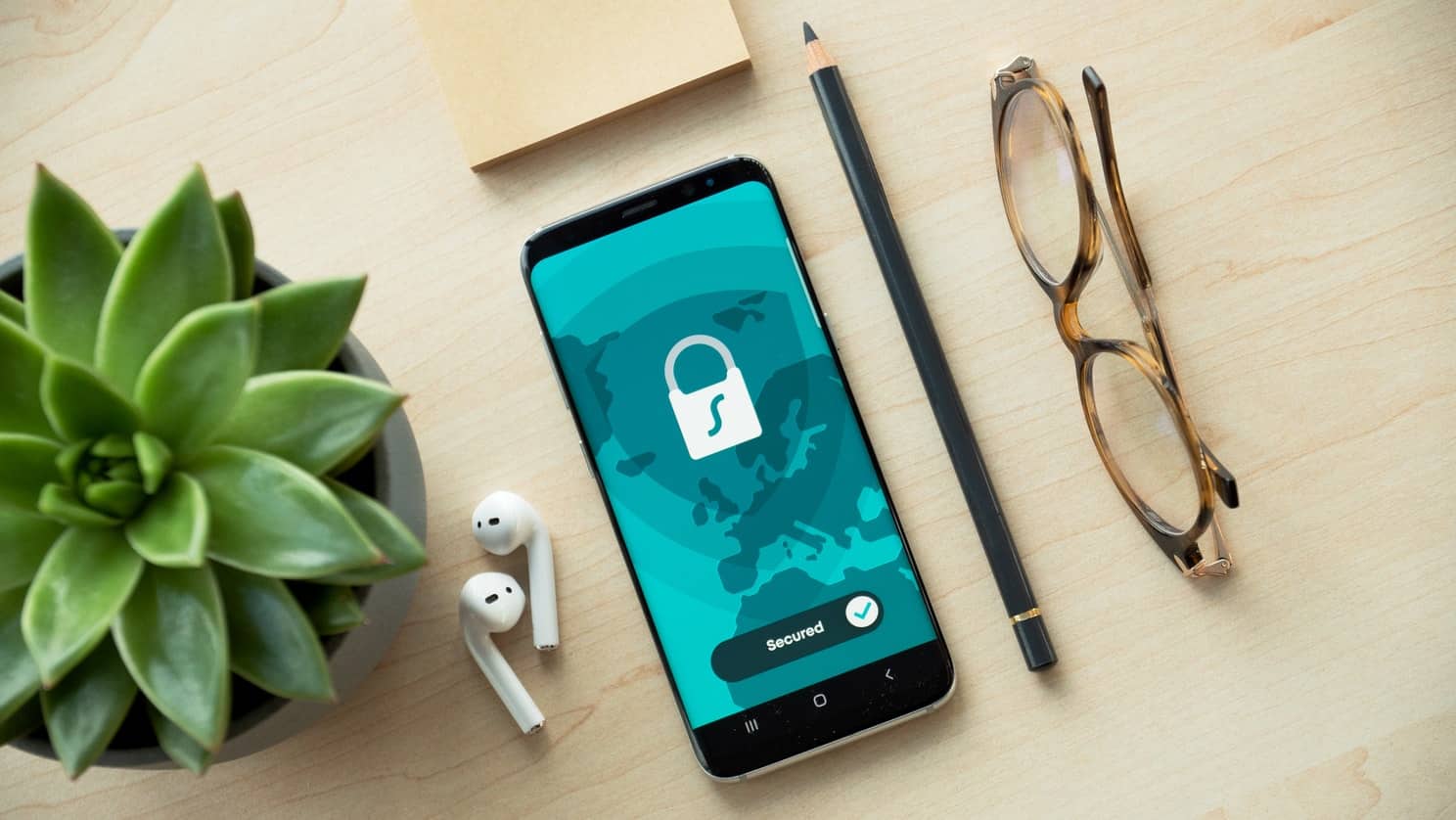

اضغط هنا للنسخة العربية.
The Libyan Cybercrime Law – between ambiguity of concepts, generality of definitions, and sloppy wording… what is it? What does it entail? And what is next?
Introduction
On Tuesday the 27th of September 2022, the Al-Bayda based Libyan House of Representatives issued Law No. 5 of 2022 on ‘Combating Cybercrime.’ This law comes in light of the faltering political agreement signed in Geneva 2020, the National Unity Government’s failure to fulfil its promises of holding general elections in December 2021, and the emergence of a parallel government in eastern Libya.
The law issued by the House of Representatives is a result of efforts of some members of the House of Representatives to combat constant campaigns against members of the House that began in 2017. It is also a result of efforts to adopt and develop the law on electronic crimes in parallel with the draft digital transactions law. These efforts culminated in issuing this version of the law, which is a revised version of the draft which was voted on by a majority in the House of Representatives on Tuesday the 26th of October 2021.
The general Libyan context
The country is going through a period of political stagnation following a period of temporary stability experienced after the outcomes of the Libyan Political Dialogue Forum led by the United Nations General Envoy in November of 2020. The Dialogue Forum’s ‘Committee 75’ elected a Presidential Council with two Representatives and a Prime Minister. The National Unity Government was formed under the leadership of Abdul Hamid Dbeibeh and was granted confidence by the House of Representatives in February of 2021. The main task of this government was to prepare for the parliamentary and presidential elections that were supposed to be held last December. These elections were later postponed indefinitely on the grounds of force majeure conditions which analysts understand to be the controversial nature of some of the presidential candidates.
As a result of these events, a new government emerged from the House of Representatives. The ‘Libyan government’ led by Fathi Bashagha opened the door to a power struggle, with each government trying to prove its strength. This imposed a state of political division, similar to the pre-2020 Geneva Dialogue situation, which was reflected in an armed conflict and subsequent numerous human rights violations and general harm to citizens.
The human rights violations and harassment continue within the digital space, targeting activists working in the public sphere, including politicians and activists. There was also a noticeable increase in the frequency of hate speech, incitement and harassment against activists, regions, ethnic minorities and women. The majority of these violations stem from government institutions, funded by the state treasury.
Draft law
Work on the Cybercrime Law of 2017 is a result of a proposal by academics from the University of Benghazi corresponding with a wave of legislation in the region to regulate cyberspace and cybercrime in response to cyber campaigns targeting the presidency of the House of Representatives and its members. The previous final draft law and the law in its final form focused on serving members of the House of Representatives and those working in government, with the purpose of protecting them from any criticism or ridicule! The earlier first versions of the draft law dating back to 2018 were leaked to the public in the Autumn of 2021. The leak was a result of some members of Parliament’s efforts to obtain opinions from technology experts. However, the law was later adopted without taking into account any of these opinions or the reservations submitted by both local and international human rights institutions.
The leakage of the draft law last year led to a state of resentment and dissatisfaction within the human rights and technical community, amongst activists and relevant local and international institutions. Perhaps one of the most prominent responses to the draft law was the joint statement published by Access Now on its official website, “Rights Organizations Call on the Libyan Authorities to Withdraw the New Cybercrime Law,” calling on the House of Representatives to amend or repeal this law. Another response to the leakage was an article by SMEX titled “The New Libyan Anti-Cybercrime Law: Legislation of Repression.” Annir had also previously published an article by Amjad Badr, clarifying key articles that affect the safety of citizens and violate their privacy, "Cybercrime Law - a New Scarecrow to silence mouths."
This law is characterised by a vagueness of concepts, general definitions, and poor wording. This leaves room for interpretation in line with the whims of the executive power, and eventually the judiciary, adapted and interpreted as a weapon against citizens, rather than for their protection.
Human rights violations
After the draft law was leaked last summer, institutions working in the field of technology and human rights endeavoured to study the draft law and to address the House of Representatives about human rights violations and technical points that flaw the draft law. The adopted law did not take into account the demands, instead increasing some punishments. By doing so, the interests of the House of Representatives and its members were prioritised over that of citizens. The following articles explain the human rights violations as provided for in the law:
Article 4 – The legitimate use of technology: This article states that “the use of the international information network and modern technology means is legitimate unless it results in a violation of public order or public morals or offends or harms others.” This bring us back to the continuing problem of defining public order and morals and who is responsible for framing them, providing security authorities with discretion to determine these questions.
Article No. 7 – Controlling what is published through modern means of technology: This article contradicts the International Covenant on Civil and Political Rights in Article 19, which states that: “Everyone has the right to freedom of expression. This right includes the freedom to seek, receive and impart information and ideas of all kinds. without regard to borders, whether in written or printed form or in an artistic form or by any other means of his choice.” Article No.7 allows for censorship of what is published within the digital space and blocking what does not align with the whims of those in power, although the law provides that a judicial order must be issued to monitor “email or conversations.”
Article No. 8 – Blocking pornographic or immoral websites: This article states that the National Authority for Information Security and Safety must block pornographic or immoral websites. However, this article does not specify the mechanism for implementing this, such as through the judiciary or by obtaining a judicial permission. This may result in blocking some sites and platforms at the discretion of the implementing agency such as "Netflix, TikTok" or any other platform or site.
Article No. 9 – Possession of tools for encryption: The article does not allow any person or entity to possess tools for encryption. This raises many questions, including what if a citizen encrypts their personal data or their work, and whether it is possible to use messaging applications that use binary encryption.
Article 14 – Possession and use of decoding programs: The article does not allow the use of decoding programs and punishes anyone who breaks the prohibition by “imprisonment for a period of not less than one year and a fine of not less than one thousand dinars and not more than ten thousand dinars.” This is inconsistent with Article 19 of the International Covenant on Civil Rights which states that “Everyone has the right to freedom of expression. This right includes the freedom to seek, receive and impart information and ideas of all kinds, regardless of frontiers, whether in written or printed form, in the form of art, or through any other media of his choice.”
Article 35 – Abstaining from reporting: This article provides that anyone who commits any of the crimes set out in this law must be punished. The general and broad meaning of many of the articles and phrases of this law leave the punishment at the discretion of the authority responsible for implementing the law, which causes many violations of international standards and rights.
Article 37 – Threatening security or public safety: This article may be interpreted in a way that can lead to the targeting of activists, journalists, and defenders of civil and political rights and liberties, and the criminalization of publishing their content and reports for any violation that occurs.
Article 47 – Unlawful wiretapping: This article contradicts Article 14 of the Constitutional Declaration of the State of Libya, which guarantees freedom of opinion for the individual and groups, and freedom of communication. It also contradicts Article 7 of the declaration, which states that “The state shall commit itself to join the international and regional declarations and charters which protect such rights and freedoms. The State shall endeavour to promulgate new charters which shall honour the human being as being God's successor on Earth.” The article also conflicts with Article 19 of the International Covenant on Civil and Political Rights.
We note that what is set out in the articles above is contrary to laws on rights and freedoms in general, and especially conflicts with the constitutional declaration. It appears that the House of Representatives is indifferent to these laws, and its ultimate goal is to formulate a law that guarantees it freedom of action and immunizes itself from criticism.
Between the draft and the law
After reviewing the law, it becomes clear that there were some minor amendments to the leaked draft law from last year, centred on amending a number of penalties and definitions set out by the law, as follows:
Amending Article No. 3 in the definitions so that the definition of electronic piracy is as follows:
Electronic piracy: "the illegal use or copying of operating systems or various computer programs in the special protection system." The draft had previously defined electronic piracy as "the unlawful use or copying of operating systems or various computer programs and benefiting from them personally or commercially."
Adding a new definition for the National Authority for Information Security and Safety, established under Cabinet Decision No. 28 of 2013, which is the body responsible for implementing the law.
Changing the title of Article 6 to read as follows: “Literary, artistic or practical works” instead of “literary, artistic or digital practical works.”
Amending the text of Article 7 in its second paragraph related to controlling the powers of blocking and monitoring. The amendment allows the National Authority for Information Security and Safety to continue to have unrestricted power in monitoring the digital space and withholding what it sees as affecting social peace. The amendment restricts the National Authority for Information Security and Safety only by requiring an absolute judicial order in the case of monitoring “electronic messages or conversations.”
Increasing the period of imprisonment in Article 13 concerned with hacking an information system with the aim of obtaining digital data, from six months imprisonment to no less than one year.
Amending the text of Article 21 from imprisonment for a period of no less than five years for anyone who mixes or installs pornographic images or sounds and publishes them through the digital space, to imprisonment for a period of no less than one year for anyone who mixes or installs a sound or image and publishes it without written or electronic consent from the person concerned.
Amending the text of Article 45 related to aiding terrorist groups from life imprisonment to imprisonment.
What's Next
This law represents a legalisation of the systematic and continuous behaviour of the state's security agencies in suppressing and limiting freedom of expression, as it allows the relevant authorities permission for such behaviours through interpretation. Despite the many efforts that were made to pressure the House of Representatives to amend the draft law, the House refused to consider these proposals. The law could be summarized as restricting freedoms and muting votes so that everyone in the digital space would be guilty of a crime they did not commit.
Writer:
Feras Bezanti: A software engineer with experience in the telecommunications and banking sectors. Feras leads the digital rights efforts at Hexa Connection within the framework of the Annir initiative. He is passionate about contributing to the increase and development of digital awareness within the community. Firas graduated from the Faculty of Computer Technology, Tripoli University, with a bachelor's degree in programming and systems development.
Co-writer:
Amjad Badr: A computer engineer specialized in the field of ICT development and social innovation, currently completing a master's degree in technology governance and digital transformation. He is a social entrepreneur, founder and member of several local and international institutions.
مواضيع أخرى قد تهمك
-
 2023/02/01ديسمبر المشؤوم: هجمات واخلالات وانقطاعات في الخدمة!، ديسمبر المشؤوم: هجمات واخلالات وانقطاعات في الخدمة!ديسمبر المشؤوم: هجمات واخلالات وانقطاعات في الخدمة!شهد شهر ديسمبر الماضي (2022) العديد من الأحداث الغريبة التي حدثت بوتيرة سريعة في الفضاء الرقمي الليبي. تمثلت هذه الأحداث في هجمات حجب الخدمة (DDOS Attacks) وتوقف العديد من المواقع المستضافة محلياً في ليبيا وخدمات بعض الشركات والمصارف والاستيلاء على بعض الحسابات الرسمية لجهات حكومية في ليبي
2023/02/01ديسمبر المشؤوم: هجمات واخلالات وانقطاعات في الخدمة!، ديسمبر المشؤوم: هجمات واخلالات وانقطاعات في الخدمة!ديسمبر المشؤوم: هجمات واخلالات وانقطاعات في الخدمة!شهد شهر ديسمبر الماضي (2022) العديد من الأحداث الغريبة التي حدثت بوتيرة سريعة في الفضاء الرقمي الليبي. تمثلت هذه الأحداث في هجمات حجب الخدمة (DDOS Attacks) وتوقف العديد من المواقع المستضافة محلياً في ليبيا وخدمات بعض الشركات والمصارف والاستيلاء على بعض الحسابات الرسمية لجهات حكومية في ليبي -
 2021/01/02الحفاظ على الخصوصية في عصر تجميع البيانات، الحفاظ على الخصوصية في عصر تجميع البياناتالحفاظ على الخصوصية في عصر تجميع البياناتكيف يمكن أن نتفاعل مع المواقع ونحمي نفسي وهويتي وخصوصيتي وقوائم الاتصال والارتباطات؟ وشن هي المعلومات اللي نبي الحفاظ على خصوصيتها؟ ومِن من؟
2021/01/02الحفاظ على الخصوصية في عصر تجميع البيانات، الحفاظ على الخصوصية في عصر تجميع البياناتالحفاظ على الخصوصية في عصر تجميع البياناتكيف يمكن أن نتفاعل مع المواقع ونحمي نفسي وهويتي وخصوصيتي وقوائم الاتصال والارتباطات؟ وشن هي المعلومات اللي نبي الحفاظ على خصوصيتها؟ ومِن من؟ -
 2021/10/20ما هي الكوكيز أو ملفات تعريف الإرتباط؟، ما هي الكوكيز أو ملفات تعريف الإرتباط؟ما هي الكوكيز أو ملفات تعريف الإرتباط؟كوكيز؟ ايه! لكن مش النوع الي في بالك بالتحديد! الكوكيز او "ملفات تعريف الارتباط" هي مجموعة من البيانات تخزنها مواقع الويب على جهاز المُستخدم، وظيفتها انه تقعد اتبع فيك وفي نشاطاتك وتجمع في المعلومات المختلفة عنك وعن اهتماماتك
2021/10/20ما هي الكوكيز أو ملفات تعريف الإرتباط؟، ما هي الكوكيز أو ملفات تعريف الإرتباط؟ما هي الكوكيز أو ملفات تعريف الإرتباط؟كوكيز؟ ايه! لكن مش النوع الي في بالك بالتحديد! الكوكيز او "ملفات تعريف الارتباط" هي مجموعة من البيانات تخزنها مواقع الويب على جهاز المُستخدم، وظيفتها انه تقعد اتبع فيك وفي نشاطاتك وتجمع في المعلومات المختلفة عنك وعن اهتماماتك